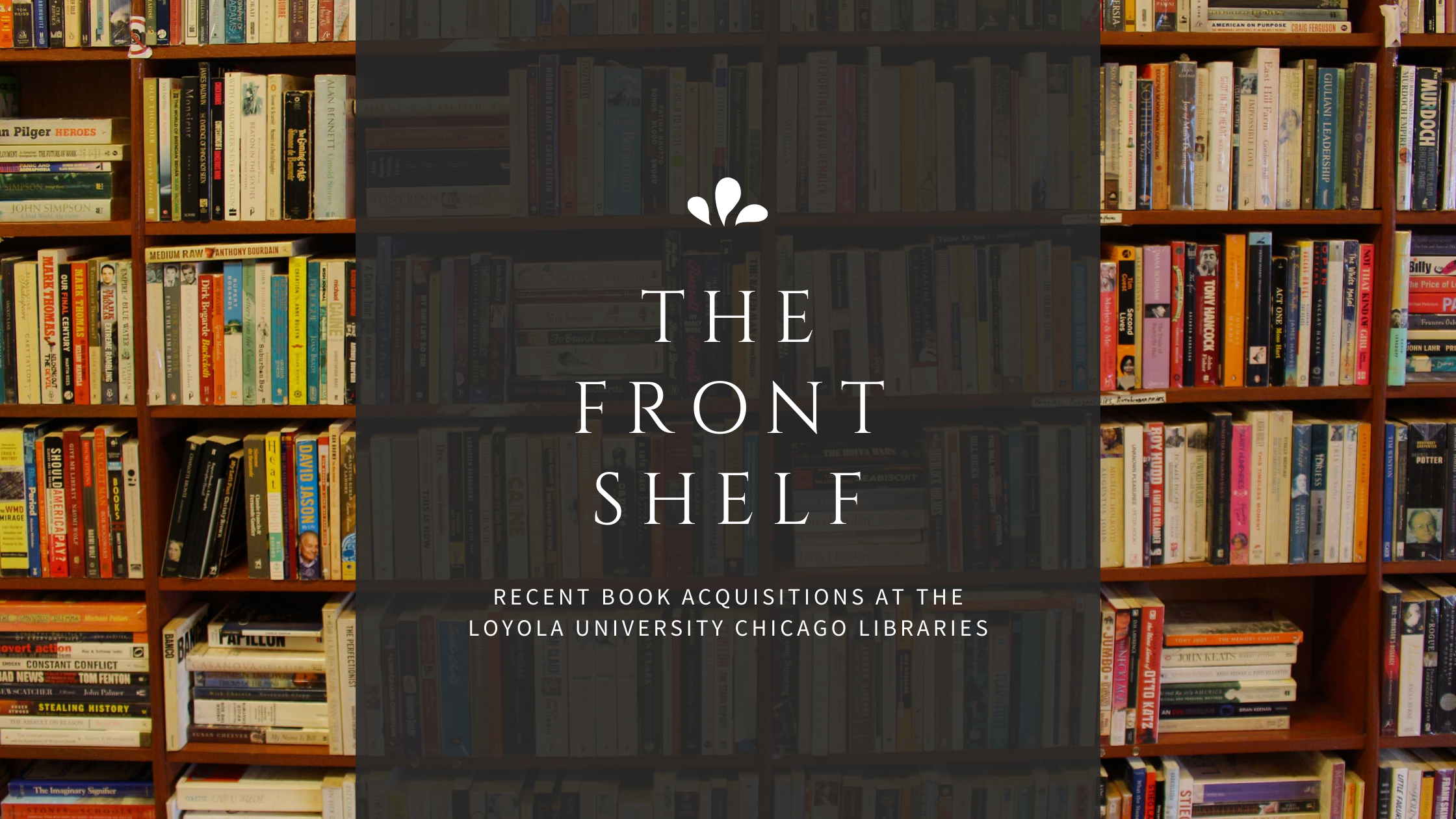Thursday, July 1st, 2021
Each month, we will post a selection of recently-acquired books, from new releases to old classics, which have been added to our catalog and are available for use by the Loyola community. This series is inspired by The Seminary Co-op’s “The Front Table” publication: https://www.semcoop.com/.
This month’s edition includes primarily ebooks. Links to catalog records are included in the descriptions.
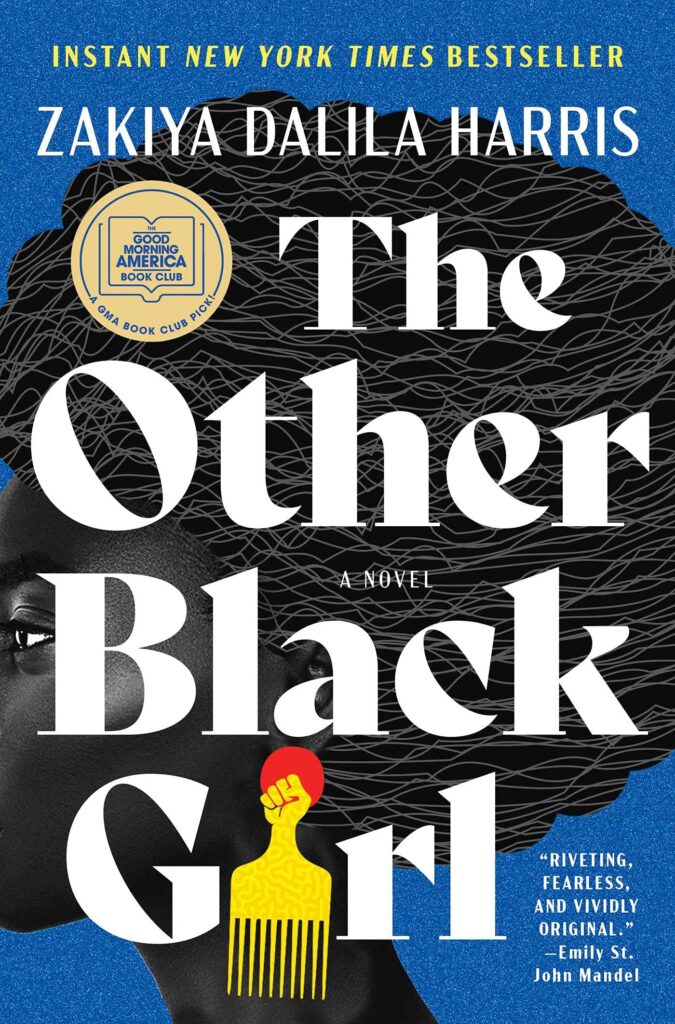
Harris, Zakiya Dalila. The Other Black Girl : a Novel . First Atria Books hardcover edition., Atria Books, 2021.
click here for access (ebook)
Urgent, propulsive, and sharp as a knife, The Other Black Girl is an electric debut about the tension that unfurls when two young Black women meet against the starkly white backdrop of New York City book publishing. Twenty-six-year-old editorial assistant Nella Rogers is tired of being the only Black employee at Wagner Books. Fed up with the isolation and microaggressions, she’s thrilled when Harlem-born and bred Hazel starts working in the cubicle beside hers. They’ve only just started comparing natural hair care regimens, though, when a string of uncomfortable events elevates Hazel to Office Darling, and Nella is left in the dust. Then the notes begin to appear on Nella’s desk: LEAVE WAGNER. NOW. It’s hard to believe Hazel is behind these hostile messages. But as Nella starts to spiral and obsess over the sinister forces at play, she soon realizes that there’s a lot more at stake than just her career. A whip-smart and dynamic thriller and sly social commentary that is perfect for anyone who has ever felt manipulated, threatened, or overlooked in the workplace, The Other Black Girl will keep you on the edge of your seat until the very last twist.
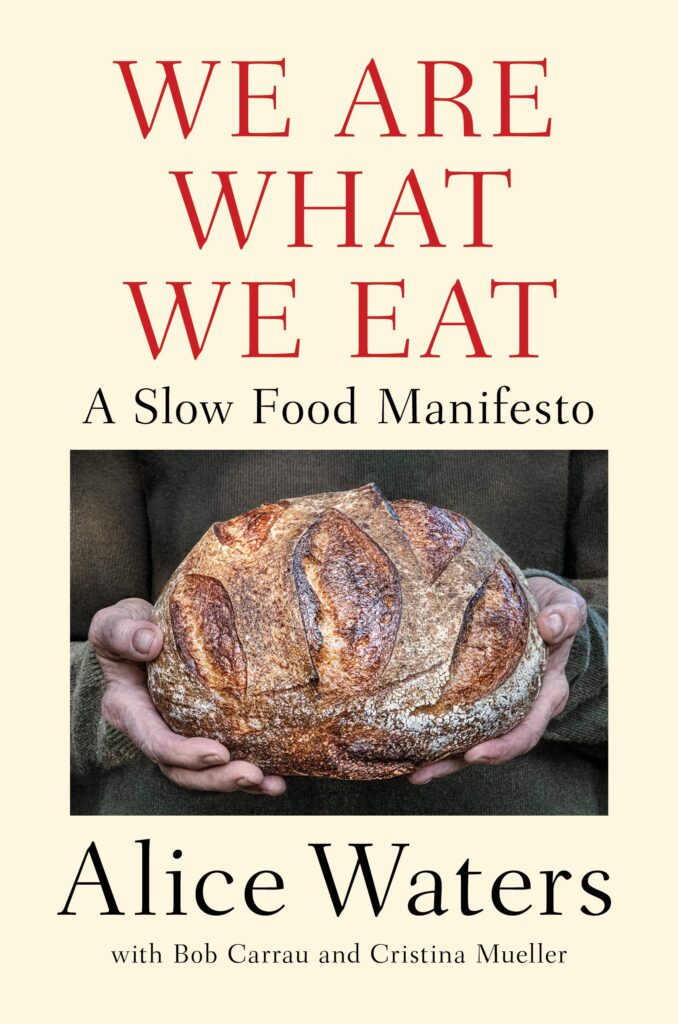
Waters, Alice, et al. We Are What We Eat : a Slow Food Manifesto . Penguin Press, 2021.
click here for access (ebook)
From chef and food activist Alice Waters, an impassioned plea for a radical reconsideration of the way each and every one of us cooks and eats. In We Are What We Eat, Alice Waters urges us to take up the mantle of slow food culture, the philosophy at the core of her life’s work. Waters came to see that the phenomenon of fast food culture, which prioritized cheapness, availability, and speed, was not only ruining our health, but also dehumanizing the ways we live and relate to one another. Over years of working with regional farmers, Waters and her partners learned how geography and seasonal fluctuations affect the ingredients on the menu, as well as about the dangers of pesticides, the plight of fieldworkers, and the social, economic, and environmental threats posed by industrial farming and food distribution. So many of the serious problems we face in the world today—from illness, to social unrest, to economic disparity, and environmental degradation—are all, at their core, connected to food. Waters argues that by eating in a “slow food way,” each of us—like the community around her restaurant—can be empowered to prioritize and nurture a different kind of culture, one that champions values such as biodiversity, seasonality, stewardship, and pleasure in work. We have the power to choose what we eat, and we have the potential for individual and global transformation—simply by shifting our relationship to food. All it takes is a taste.
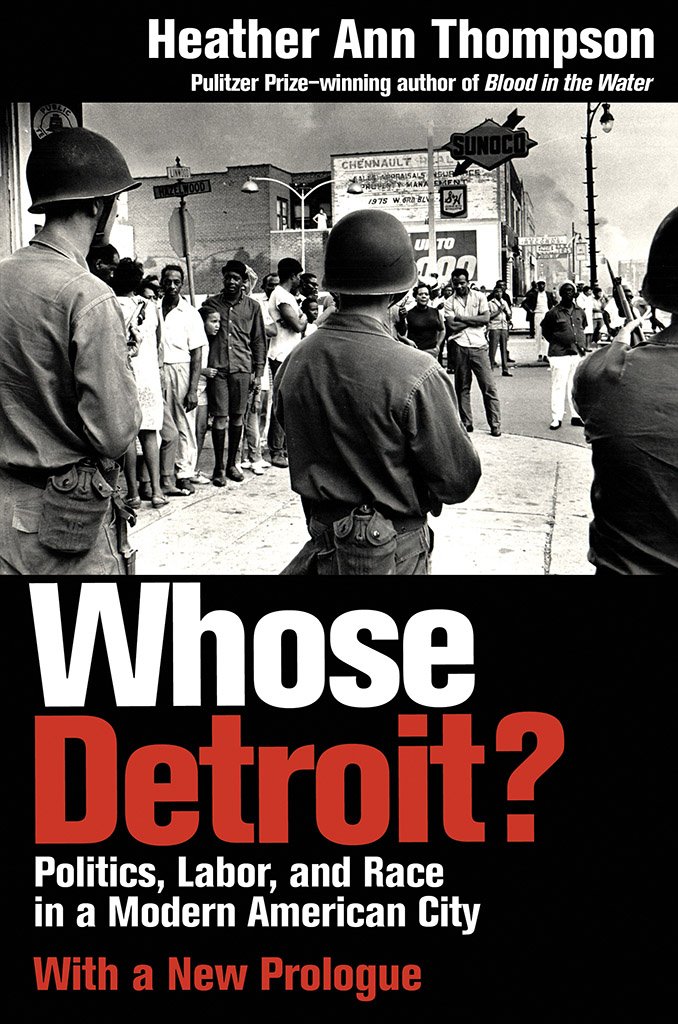
Thompson, Heather Ann. Whose Detroit? : Politics, Labor, and Race in a Modern American City . Cornell University Press, 2017.
click here for access (ebook, print)
In Whose Detroit?, Heather Ann Thompson focuses in detail on the African American struggles for full equality and equal justice under the law that shaped the Motor City during the 1960s and 1970s. Even after Great Society liberals committed themselves to improving conditions in Detroit, Thompson argues, poverty and police brutality continued to plague both neighborhoods and workplaces. Frustration with entrenched discrimination and the lack of meaningful remedies not only led black residents to erupt in the infamous urban uprising of 1967, but it also sparked myriad grassroots challenges to postwar liberalism in the wake of that rebellion. With deft attention to the historical background and to the dramatic struggles of Detroit’s residents, and with a new prologue that argues for the ways in which the War on Crime and mass incarceration also devastated the Motor City over time, Thompson has written a biography of an entire nation at a time of crisis.
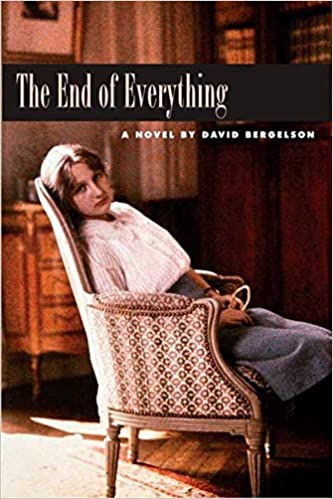
Bergelson, David, and Joseph Sherman. The End of Everything: A Novel. Yale University Press, 2013.
click here for access (ebook)
In this powerful novel set in Tsarist Russia, a young Jewish woman forced into a marriage of convenience descends into emotional turmoil. Originally published in 1913, and titled When All Is Said and Done in previous translations, The End of Everything is one of the great novels of the twentieth century. Considered David Bergelson’s masterpiece, it was written in Yiddish and until now has been unavailable in a complete and accurate English translation. This version by acclaimed translator Joseph Sherman finally brings the novel to a wide English-speaking audience. Bergelson depicts the lives of upwardly mobile, self-aware nouveaux riche Jews in the waning years of the Russian Empire. The central character, Mirel Hurvits, is an educated, beautiful woman who embodies the conflict between tradition and progress, aristocracy and enterprise. A forced marriage of convenience results in Mirel’s emotional disintegration and provokes a confrontation with the expectations of her pious family and with Jewish tradition. In a unique prose style of unsurpassable range and beauty, Bergelson reduces language to its bare essentials, punctuated by silences that heighten the sense of alienation in the story.
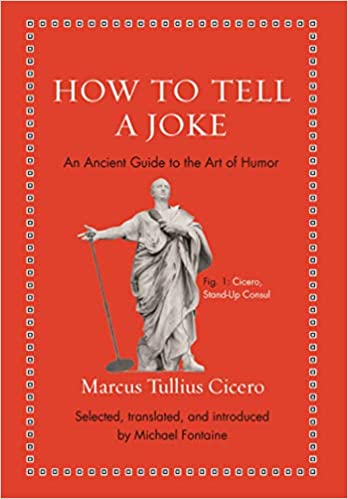
Cicero, Marcus Tullius, et al. How to Tell a Joke : an Ancient Guide to the Art of Humor . Princeton University Press, 2021.
click here for access (ebook)
Can jokes win a hostile room, a hopeless argument, or even an election? You bet they can, according to Cicero, and he knew what he was talking about. One of Rome’s greatest politicians, speakers, and lawyers, Cicero was also reputedly one of antiquity’s funniest people. After he was elected commander-in-chief and head of state, his enemies even started calling him “the stand-up Consul.” How to Tell a Joke provides a lively new translation of Cicero’s essential writing on humor alongside that of the later Roman orator and educator Quintilian. The result is a timeless practical guide to how a well-timed joke can win over any audience.
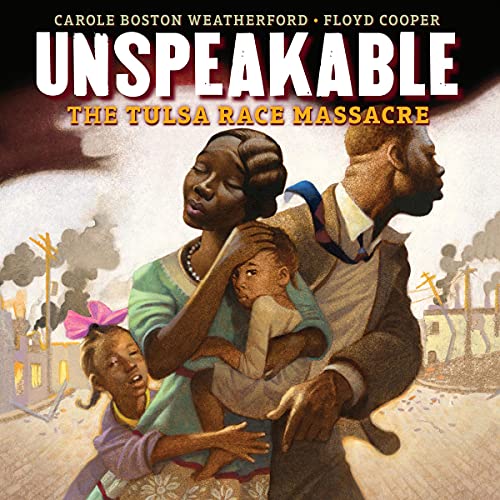
Weatherford, Carole Boston, and Floyd Cooper. Unspeakable : the Tulsa Race Massacre . Carolrhoda Books, 2021.
click here for access (ebook, print)
Celebrated author Carole Boston Weatherford and illustrator Floyd Cooper provide a powerful look at the Tulsa Race Massacre, one of the worst incidents of racial violence in our nation’s history. The book traces the history of African Americans in Tulsa’s Greenwood district and chronicles the devastation that occurred in 1921 when a white mob attacked the Black community. News of what happened was largely suppressed, and no official investigation occurred for seventy-five years. This picture book sensitively introduces young readers to this tragedy and concludes with a call for a better future.
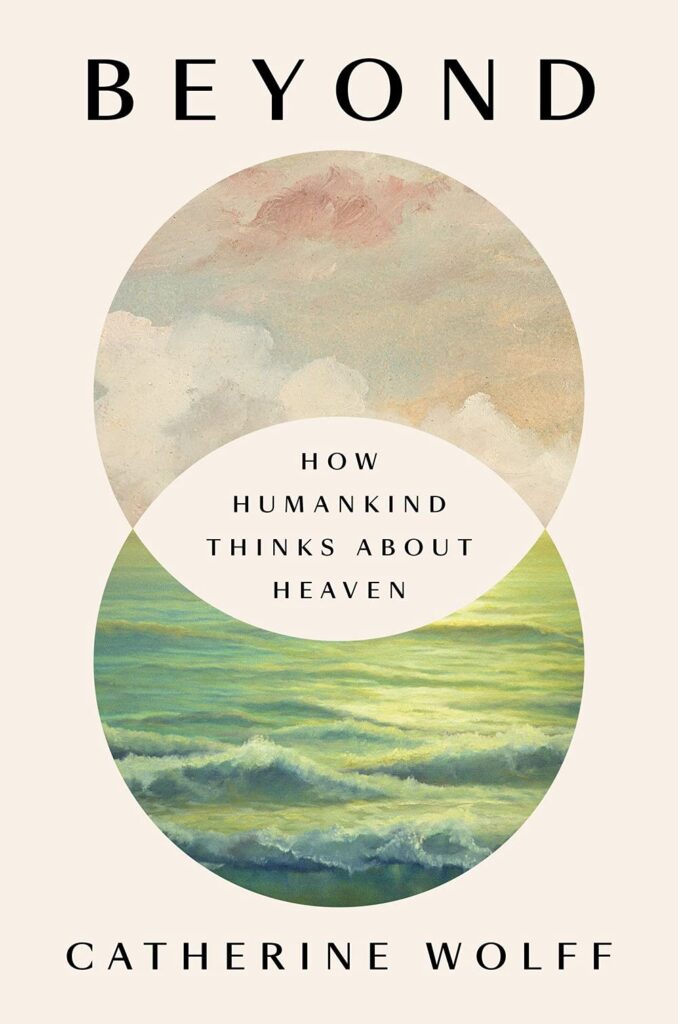
Wolff, Catherine. Beyond : How Humankind Thinks About Heaven . Riverhead Books, 2021.
click here for access (ebook)
A smart and thought-provoking cultural history of heaven. What do we think of when we think about heaven? What might it look like? Who or what might be there? Since humans began to huddle together for protection thousands of years ago, these questions have been part of how civilizations and cultures define heaven, the good place beyond this one. From Christianity to Islam to Hinduism and beyond, from the brush of Michelangelo to the pen of Dante, people across millennia have tried to explain and describe heaven in ways that are distinctive and analogous, unique and universal. In this engrossing cultural history of heaven, Catherine Wolff delves into how people and cultures have defined heaven over the centuries. She describes how different faiths and religions have framed it, how the sense of heaven has evolved, and how nonreligious influences have affected it, from the Enlightenment to the increasingly nonreligious views of heaven today. Wolff looks deep into the accounts of heaven to discover what’s common among them and what makes each conception distinct and memorable. The result is Beyond, an engaging, thoughtful exploration of an idea that is central to our humanity and our desire to define an existence beyond death.
